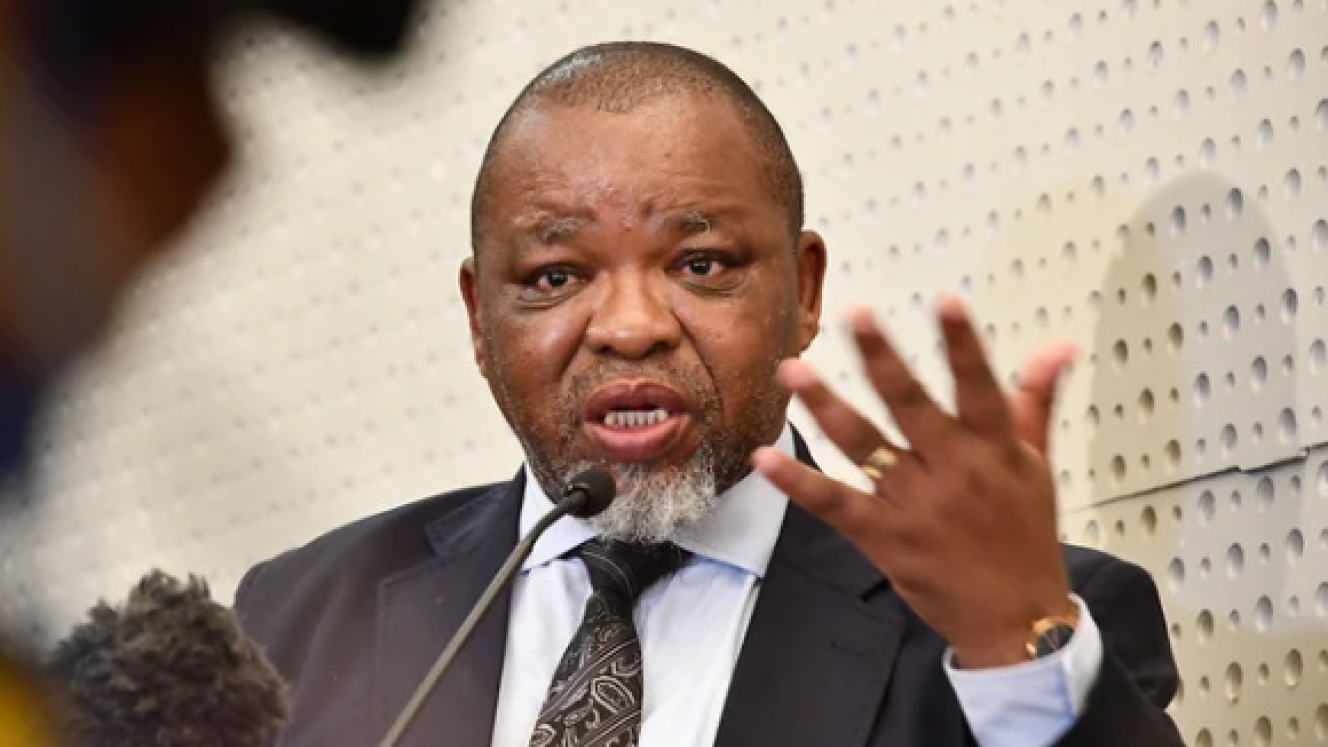Environmental and community organisations have expressed outrage that Minister of Mineral Resources and Energy, Gwede Mantashe, will be holding a meeting with traditional leaders to discuss oil and gas developments in the Eastern Cape on Thursday.
Representatives of coastal communities and supporting civil society organisations, who gathered in Durban on Wednesday and Thursday to hold a strategic workshop regarding the developments, condemned the move as “non-transparent action”.
Mantashe announced on Tuesday that that he would be visiting the Eastern Cape to talk to traditional leaders about the oil and gas developments.
The meetings are timed for the AmaGcaleka and AbaThembu traditional councils which take place over two days.
More than 20 organisations, including Greenpeace, KZN Subsistence Fisherman Forum, Groundwork, Coastal Justice Network, EC Khoisan SSF, Ubunye Bama Hostela, Natural Justice, and Earthlife Africa Johannesburg, have expressed their concerns about the lack of consultation regarding the Shell oil and gas exploration project, which will include seismic blasting in an environmentally sensitive marine area, off the Eastern Cape coast.
Amadiba Crisis Committee (ACC) spokesperson, Nonhle Mbuthuma, questioned why the minister was consulting with traditional leaders when it was local communities who had won a court interdict against Shell’s proposed exploration project in December 2021.
“The communities who are directly affected brought a court interdict last year. Why does the minister go to see traditional leaders?
“It was not them that went to court.
“As communities, we took Shell to court, not the traditional leaders.
“When there are developments proposed, government must consult communities.
“It is part of the Constitution, and therefore they cannot ignore us.
“When we hear that the minister has decided to only consult the traditional leaders, it is very insulting to our customary law, because it is a top-down approach; you cannot just consult traditional leaders and think it is a done deal,” Mbuthuma said.
In the Makhanda High Court decision of December 28, 2021, the court found that Shell’s consultation with stakeholders had been insufficient.
The judge found that the king could not make representations on behalf of all community members. He also found the consultation process had been substantially flawed and that the exploration right had been unlawful and invalid.
Sustaining the Wild Coast representative, Sinegugu Zukulu, said that in terms of customary law, the government should consult with the community
Eastern Cape Khoisan Fisher Cooperative representative, Deon Spandiel, said the Griqua/Nama and Cape Khoi people had not been consulted.
“We have not been consulted. So, why is the minister running away?
“We, as coastal communities, fishing communities are concerned about the growing trend of the lack of consulting with communities.”
Greenpeace Africa representative Desiree Laverne described the meeting as a “so-called stakeholder consultation”.
“What they are doing is they consult traditional leaders and exclude the community.
“It is like eating from two different plates.
“One is the leadership, already living the lives of the elite.
“The other is the plate that matters, those people who are living hand-to-mouth.
So, it seems that government likes to consult with those with full plates, not those with the empty plates.”
Green Connection’s community outreach coordinator, Neville van Rooy, said the government had a habit of not consulting people.
“There was the Shell exploration right and then the gas exploration bill, there was no consultation within the Eastern Cape coastal communities.
“And then, there was also Karpower. We see that there is a trend of refusing to engage coastal communities,” he said.
“Consultation needs to be meaningful as per the National Environmental Act (Nema).
“The principle applies to any decision that may significantly affect the environment.”
The participation of all interested and affected parties in environmental governance must be promoted, and all people must have the opportunity to develop the understanding, skills, and capacity necessary for achieving equitable and effective participation, and participation by vulnerable and disadvantaged persons must be ensured.
”In direct contravention of these legal principles, consultation processes take place mostly in English, through virtual meetings. However, communities do not have money to buy data, so these consultation processes are only for the elite,” Van Rooy said.
Ntsindiso Nongcavu from Port St John’s, a leader of one of the many small-scale fishing communities along the coast with fishing rights, asked why politicians were defending corporates instead of the interests of the people.
South Durban Community Environmental Alliance (SDCEA) spokesperson, Desmond D’Sa, said: “Mantashe’s push for the oil and













